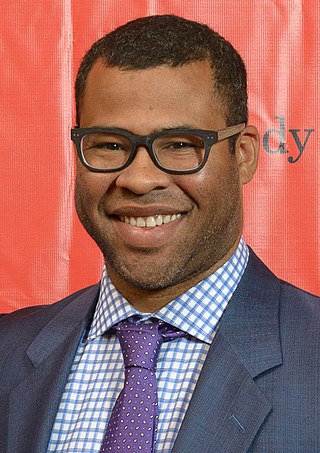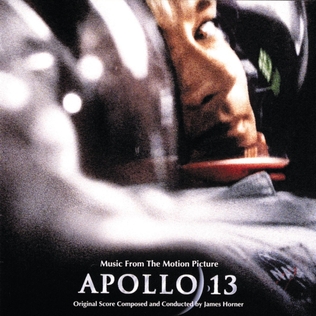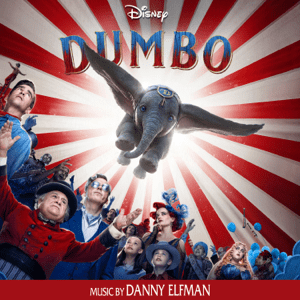
Michael Abels is an American composer best known for the opera Omar, co-written with Rhiannon Giddens, and his scores for the Jordan Peele films Get Out, Us and Nope. The hip-hop influenced score for Us was short-listed for the Oscars and was even named "Score of the Decade" by TheWrap. Other recent media projects include the films Bad Education, Nightbooks, Fake Famous, and the docu-series Allen v. Farrow. His most recent releases include Beauty which premiered at the Tribeca Film Festival and is now streaming on Netflix, Breaking which premiered at Sundance, and his third collaboration with Jordan Peele, Nope.

Grant Kirkhope is a Scottish composer and voice actor for video games and film. Some of his notable works include GoldenEye 007, Banjo-Kazooie, Donkey Kong 64, and Perfect Dark, among many others. He has won an Ivor Novello Award for Mario + Rabbids Sparks of Hope and a World Soundtrack Award for The King's Daughter as well as being nominated for various BAFTA, ASCAP, and IFMCA awards.

Brian Theodore Tyler is an American composer, conductor and arranger, best known for his film, television, and video game scores. In his 26-year career, Tyler has scored seven installments of the Fast & Furious franchise, Rambo, Eagle Eye, The Expendables trilogy, Iron Man 3, Now You See Me, Avengers: Age of Ultron alongside Danny Elfman, Crazy Rich Asians and The Super Mario Bros. Movie among others. He also composed and re-arranged the current fanfare of the Universal Pictures logo, originally composed by Jerry Goldsmith, for Universal Pictures' 100th anniversary, which debuted with The Lorax (2012), and composed the 2013–2016 Marvel Studios logo, which debuted with Thor: The Dark World (2013), which he also composed the film's score. He composed the NFL Sunday Countdown Theme for ESPN, the Formula One theme, and the anthem for the Esports World Cup. He is also behind the soundtrack of many television series including Yellowstone. For his work as a film composer, he won the IFMCA Awards 2014 Composer of the Year.

Jordan Haworth Peele is an American actor, comedian and filmmaker. He is known for his film and television work in the comedy and horror genres. He has received various accolades, including an Academy Award and a Primetime Emmy Award. Peele started his career in sketch comedy before transitioning to writing and directing psychological horror with comedic elements. In 2017, Peele was included on the annual Time 100 list of the most influential people in the world.

Abel Korzeniowski is a Polish composer of film and theatre scores.

The International Film Music Critics Association (IFMCA) is a professional association for online, print and radio journalists who specialize in writing about original film and television music.

Austin Wintory is an American composer for film and video games. He is known for scoring the video games Flow and Journey, the latter of which made history as the only video game soundtrack to be nominated for the Grammy Award for Best Score Soundtrack for Visual Media.

Get Out is a 2017 American psychological horror film written, co-produced, and directed by Jordan Peele in his directorial debut. It stars Daniel Kaluuya, Allison Williams, Lil Rel Howery, LaKeith Stanfield, Bradley Whitford, Caleb Landry Jones, Stephen Root, Catherine Keener and Betty Gabriel. The plot follows a young black man (Kaluuya), who uncovers shocking secrets when he meets the family of his white girlfriend (Williams).

Us is a 2019 American psychological horror film written and directed by Jordan Peele. The film features an ensemble cast, starring Lupita Nyong'o, Winston Duke, Shahadi Wright Joseph, Evan Alex, Elisabeth Moss, and Tim Heidecker. The story follows Adelaide Wilson (Nyong'o) and her family, who are attacked by a group of menacing doppelgängers, called the "Tethered".

Nope is a 2022 American Western science fiction horror film written, directed, and produced by Jordan Peele, under his and Ian Cooper's Monkeypaw Productions banner. It stars Daniel Kaluuya and Keke Palmer as horse-wrangling siblings attempting to capture evidence of an unidentified flying object in Agua Dulce, California. Appearing in supporting roles are Steven Yeun, Michael Wincott, Brandon Perea, and Keith David.

Apollo 13: Music From The Motion Picture is the soundtrack to the 1995 film Apollo 13 featuring an original score composed, conducted and producer by James Horner. The soundtrack was released on June 27, 1995 by MCA Records that compiled seven tracks of score, eight period songs used in the film, and seven tracks of dialogue by the actors at a running time of nearly 78 minutes.

Little Women: Original Motion Picture Soundtrack is the score album composed by Alexandre Desplat for the 2019 American film Little Women. A seventh film adaptation of the 1868 novel of the same name by Louisa May Alcott, the film is directed by Greta Gerwig, and stars an ensemble cast consisting of Saoirse Ronan, Emma Watson, Florence Pugh, Eliza Scanlen, Laura Dern, Timothée Chalamet, Meryl Streep, Tracy Letts, Bob Odenkirk, James Norton, Louis Garrel, and Chris Cooper. The original score album was released by Sony Music on December 13, 2019.

Lincoln (Original Motion Picture Soundtrack) is the score album to the 2012 biographical historical drama film Lincoln, based on the Doris Kearns Goodwin's 2005 biography Team of Rivals: The Political Genius of Abraham Lincoln, a semi-biographical novel that covers the final four months of United States President Abraham Lincoln's life. The film is directed by Steven Spielberg, from a screenplay written by Tony Kushner and featured musical score composed by John Williams, Spielberg's frequent collaborator. The orchestral score was recorded at Symphony Center, Chicago by the Chicago Symphony Orchestra and the Chicago Symphony Chorus. It was released by Sony Classical on November 2, 2012.

Ready Player One is a 2018 American science fiction action film based on Ernest Cline's novel of the same name, directed by Steven Spielberg from a screenplay by Zak Penn and Cline. The film stars Tye Sheridan, Olivia Cooke, Ben Mendelsohn, Lena Waithe, T.J. Miller, Simon Pegg, and Mark Rylance.

Mary Queen of Scots (Original Motion Picture Soundtrack) is the soundtrack to the 2018 film Mary Queen of Scots, directed by Josie Rourke starring Saoirse Ronan as Mary, Queen of Scots, and Margot Robbie as her cousin Queen Elizabeth I. Featuring original score by Max Richter, consisting of period and contemporary modern music, the album was recorded at the Air Studios in London, with an 100-piece orchestra and 12-member female choir performing the score. Deutsche Grammophon released the film's score on 7 December 2018.

W.E. is the soundtrack to the 2012 film W.E. written and directed by Madonna, and starred Abbie Cornish, Andrea Riseborough, Oscar Isaac, Richard Coyle, and James D'Arcy. The original score was written and produced by Polish composer Abel Korzeniowski, with eleven of them being featured in the film's soundtrack, whilst an original song featured the film's end credits "Masterpiece", performed by Madonna, was included in the soundtrack and later on Madonna's album, MDNA. The song would subsequently win the Best Original Song category at the 69th Golden Globe Awards, before the film's release. The soundtrack was released digitally through Interscope Records on January 31, 2012.

Us (Original Motion Picture Soundtrack) is the soundtrack to the 2019 film of the same name directed by Jordan Peele and featured musical score composed by Michael Abels in his second feature. The soundtrack was released by Back Lot Music on March 15, 2019, featuring Abels' original score, and three tracks heard in the film—"I Like That" by Janelle Monáe, "I Got 5 on It" by Luniz and "Les Fleurs" by Minnie Riperton. The remixed version of "I Got 5 on It" preceded the album. The vinyl edition of the soundtrack was released on September 13, 2019.

Beasts of the Southern Wild (Music from the Motion Picture) is the soundtrack to the 2012 film Beasts of the Southern Wild directed by Benh Zeitlin, who co-composed the film score with Dan Romer. Released on June 26, 2012 through 33⅓rd Records, the score met with critical acclaim and received several accolades.

Dumbo (Original Motion Picture Soundtrack) is the soundtrack to the 2019 film Dumbo directed by Tim Burton, which is a live-action adaptation and reimagining of Walt Disney's 1941 film of the same name. The film's soundtrack featured musical score composed by Danny Elfman and songs from the original film. The album was released through Walt Disney Records digitally on March 29, 2019 and physically on April 26.

Nope (Original Motion Picture Soundtrack) is the soundtrack to the 2022 neo-Western science fiction horror film Nope written, directed and produced by Jordan Peele starring Daniel Kaluuya, Keke Palmer and Steven Yeun. The original music is composed by Michael Abels, Peele's regular collaborator, which consisted of a score that blends grand adventurous music and eerie sounds matching the film's script. Most of the themes were written before the film's production and were developed with a 60-piece orchestra and 30-member vocal choir recorded for a year.




















